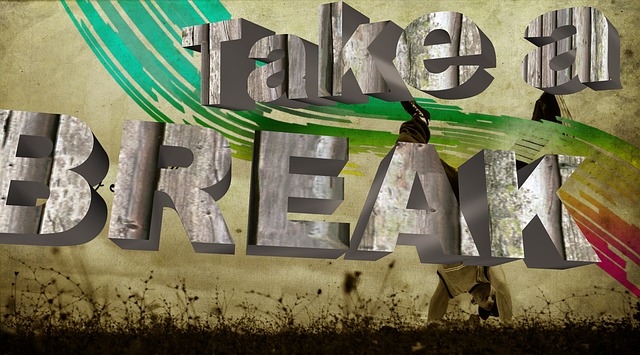Healing
 Is it ok to take time off to heal?
Is it ok to take time off to heal?
I haven’t run in two weeks. Honestly, I haven’t worked out in two weeks. Unless you count walking the dog.
And it has been glorious!
I’m not kidding. I had to stop due to injury, but my level of stress dropped significantly.
Not having to figure out how to shoehorn in 2 hours of training every day, 3 or 4 plus hours on the weekend days, not having to fight the February cold and dark and ice, not having to choose between work and training, not being cranky, creaky and sore every day – it has been like finally being able to breathe.
I’m pretty stoic when it comes to training. I commit to do the work. Sometimes the work fights back. But I persist because I like the outcome. The outcome is me standing fit, lean and strong at a starting line to some grand adventure somewhere. I like that outcome so much I’m willing to work for it.
A couple weeks ago I was finishing off the second of two big weeks with a hill repeat session. 8 X 1 minute hard. On tired legs. It’s a hard workout.
As I was jogging down the hill recovering from my last repetition, I had a sharp pain in my left knee on the weight bearing motion of the foot plant. Not a constant pain. Just in that one spot of the foot plant and toe off.
Saturday morning it wasn’t swollen or achy, but there was that sharp pain going up and down stairs.
I cancelled my long run to give it a couple days. Because sometimes these sharp pains are just ‘old man’ pains. Seriously, any old guy will tell you, you get these random, phantom pains. You’ll be running in a race or training run and get a pain somewhere that goes away as fast as it showed up.
After a couple days this pain was still there.
I asked coach. Told him the symptoms. He said ‘sounds like a cartilage tear – go to the doctor. ‘
I decided not to.
I may eventually go the doctor route, but I think we’ve all been down this road as amateur athletes, and the doctor path isn’t always the best.
I’m not anti-doctor. I’m pro-doctor. But our health care system, even for the privileged like me, isn’t the most direct route to the outcome you’re looking for. I’m pro-outcome.
Here’s how it plays out. I call my primary care doctor and talk to his nurse. If I’m lucky they’ll give me a referral to a knee doctor. If I’m not so lucky my primary will want to see me first. He’ll look at it and say “sounds like a cartilage tear” you should see Dr. XYZ the knee guy.
I’ll go see Dr. XYZ the knee guy, and he’ll look at it and say ‘sounds like a cartilage tear – let’s get some X-rays or a maybe even a cat scan’.
Once we have the pictures the doctor will say ‘can’t really see anything here but it’s probably a tear so take 6 weeks off and see how it goes.’
At that point I’m $2k in, I’ve lost at least a day of my time, and I’m at the ‘stay of it for 3-6 weeks point’.
Like I said, I may still end up at a doctor for this, but I decided to skip to the last part, and just take the 3 – 6 weeks off.
I was burnt out anyhow. I’ve got nothing on the calendar. I could use the rest.
It’s been glorious!
I’m two weeks in and the knee is feeling strong. The pain is barely there. But I’m smart enough to give it another week.
Let’s talk about taking time off to heal.
When and why should you take time off?
What happens to your fitness when you take time off?
What are the benefits?
How do you manage that time off?
There is a long tradition of athletes taking time off. Not just forced time off due to injury. Scheduled time off after a season or after an event. Coaches across sports have always seen the benefits of giving their athletes a break.
Many of the hard core ironman triathletes I know will take a month or more off after the season ends before they start training again in the Spring.
This time off is built into athlete’s lifecycles. It’s a time to step away and refresh.
Why do they do this? Why does it help? Coaches and athletes know that even when you have recovery in your training plan, you never fully recover.
There is this constant accumulation of stresses that you stack up through a training campaign. This is the whole point of the training campaign to push your body constantly and consistently to get those gains in fitness as a response.
Taking time off gives you time to fully recover.
I try to do this as well, but in 2020 with the pandemic I really didn’t have access to any cross training facilities. I ended up just running through my break period, because it’s the easiest thing for me and I like running.
The other benefit of taking time off is the mental break. It’s an opportunity to step back from what you’re doing and maybe re-assess. Maybe set some new goals, or come up with some new strategies. It definitely lowers the stress levels.
I do think there is a connection between mood and performance. Between stress and recovery. If you’re constantly under physical and mental stress you don’t get the full benefits of your workouts.
You can accomplish some of the same renewal by taking smaller breaks during your training campaigns but it’s like taking a day off instead of going on vacation. Short breaks will recharge you for a couple days or weeks but don’t give you a full reset.
The most valuable thing for me is that these breaks give you back objectivity. Instead of being inside the washing machine of miles and workouts, you can step back and look objectively at what the outcome is that you are looking for.
What happens to your fitness when you take a break? How fast do you lose it?
Think about this in terms of aerobic fitness and structural fitness.
Your aerobic fitness is your resting heart rate and your max-Vo2. Your ability to go long. You don’t lose your aerobic fitness quickly. You’ll lose the race specific fitness you have been building for an event fairly fast – in a couple weeks. That’s the fine-tuning bit of fitness.
But, especially if you are a life-long athlete you will hold onto that base aerobic fitness for months. You won’t be starting from scratch.
Structural fitness is the adaptation of your muscles, bones and connective tissue. Most experts think you lose this faster. Your more likely to strain something or get some tendonitis when you start up again. I’m not suer if this is a result of fitness loss or just the shock of restarting activity abruptly.
The bottom line is that you lose race fitness quickly, but you hold on to that base fitness and capability for a longer period.
And of course, from the ‘don’t want to hear it again – broken record department’ older people lose fitness faster. Younger people gain fitness back faster.
(Speaking of older people, a record is a polyvinyl chloride disc with analog audio recordings etched into it, sometimes they broke, and when they broke in a certain way they would repeat the same audio over and over again.)
You can compensate for the loss of fitness by cross training or doing strength exercises that are complimentary to your chosen athletic pursuit. i.e. you can keep some of you aerobic fitness for running by riding the bike. You can keep, or even improve your structural fitness by doing core work and yoga in your break.
I am not a doctor. Did I mention I’m pro-doctor? But, my advice is this:
It’s ok to take a break. Especially if you are injured. It’s not worth rushing back int training until you are healed. Take twice as much time off as you think you should. It will pay off in the long run (pun intended).
Find the appropriate strength and fitness activities to fill the gap. Try to enjoy these activities and get the benefit of a mental break from training.
When you come back, don’t rush it. Ease in.
It’s ok – take some time off. You have my permission.

